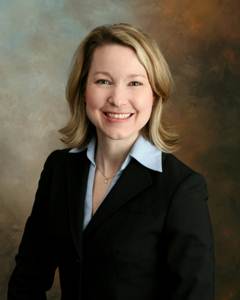
Name Alyse Stofer
- Education MS, Biomaterials, University of Minnesota; BS Biomedical Engineering, University of Iowa; Medical Device Certificate, University of St. Thomas in St. Paul, Minnesota
- Target Audience Undergraduate

Alyse Stofer, equipped with infinite ingenuity, is showing her generation and the next that engineering isn't always about building bridges or working on engines - it can be cosmetics, mobile phones or her specialty of choice, medical devices. Read more to learn why Alyse inspires us!
I am a program manager in the product development, technology and research group in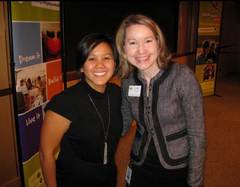 Medtronic's Neuromodulation business unit. (Neuromodulation products include neurostimulation systems and implantable drug delivery systems for chronic pain, common movement disorders and urologic and gastrointestinal disorders.) This means my team develops medical device concepts, creates and performs feasibility testing on iterations of the concept before rigorously testing the final concept. Once testing and documentation are complete, the team seeks regulatory approval and then markets, sells and supports the device release into the global market place. I do not generate the device concepts myself - my team works with physicians, engineers and marketing to understand what the customer's needs are and how the device will be used. My job is to deliver the device and ensure it meets our customer needs and intended uses per schedule, scope and budget.
Medtronic's Neuromodulation business unit. (Neuromodulation products include neurostimulation systems and implantable drug delivery systems for chronic pain, common movement disorders and urologic and gastrointestinal disorders.) This means my team develops medical device concepts, creates and performs feasibility testing on iterations of the concept before rigorously testing the final concept. Once testing and documentation are complete, the team seeks regulatory approval and then markets, sells and supports the device release into the global market place. I do not generate the device concepts myself - my team works with physicians, engineers and marketing to understand what the customer's needs are and how the device will be used. My job is to deliver the device and ensure it meets our customer needs and intended uses per schedule, scope and budget.
I hate to give the typical answer, but truly I was interested and excelled in math and science throughout school. From a big picture perspective, I wanted to shape the world and make a difference in peoples' lives; I believed I could make a difference and achieve my goals through engineering. In high school, I was first exposed to biomedical engineering through my interest in prosthetics. I had an aunt that had an artificial hip and another aunt with an artificial knee. I was fascinated that my aunts had this metal and plastic device inside of them and they could walk and function normally, without pain. I knew I wanted to become a biomedical engineer so that I could help people like my aunts.
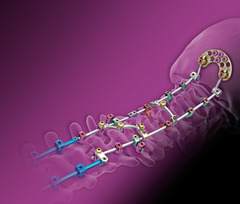 Biomedical engineers generate a device concept and then take it through an often long and complicated process to develop it. Along the way, there are many people and steps involved to deliver a product to market. In my current role as a program manager communication is a key, as work is accomplished through relationships, trust and influence management; I have no direct reports. While communication is a skill that many people may not associate with engineering, effective communication (both written and verbal) is essential to my job in order to communicate effectively with a variety of technical and non-technical individuals. Not only am I communicating with my team regarding different project activities and priorities, I am also communicating with senior management regarding project status, budget and challenges. For example, I communicate an issue the team is encountering and our mitigation and contingency plans to overcome the issue.
Biomedical engineers generate a device concept and then take it through an often long and complicated process to develop it. Along the way, there are many people and steps involved to deliver a product to market. In my current role as a program manager communication is a key, as work is accomplished through relationships, trust and influence management; I have no direct reports. While communication is a skill that many people may not associate with engineering, effective communication (both written and verbal) is essential to my job in order to communicate effectively with a variety of technical and non-technical individuals. Not only am I communicating with my team regarding different project activities and priorities, I am also communicating with senior management regarding project status, budget and challenges. For example, I communicate an issue the team is encountering and our mitigation and contingency plans to overcome the issue.
I really like working with a team. Not only do I get to put on my technical hat working with engineers, I also have the opportunity to work with functions such as marketing, finance, manufacturing and regulatory. Over the course of a day, I work with a wide variety of people and solve various problems and challenges. For me, the fun of being an engineer is that there is always a new problem to solve or challenge to overcome. Each day brings a new and different experience.
I have always liked math and science, especially math. My favorite high school math classes were a combined functions, statistics and trigonometry class and calculus. I had phenomenal teachers that enjoyed teaching and made math interesting and fun. These teachers, along with my parents were the key to my success, encouraging me and bridging my passions so to speak. My parents, and especially my mom, were extremely supportive in my development, achievements and involvement in accelerated math classes throughout school.
I attended an engineering camp between my junior and senior years of high school at a University in the upper peninsula of Michigan. It was a week-long camp just for girls - I lived on campus, worked in the engineering labs, and really experienced what it was like to be an engineer. Beginning surrounded by female engineering students and attending an all-girl camp for the entire week was a very supportive environment. It changed my perspective on engineering. After the camp I knew I had the skills, abilities and drive to become an engineer.
I have two examples - my undergraduate degree and my first job.
Most of the women and men in my undergraduate program were using biomedical engineering as a stepping stone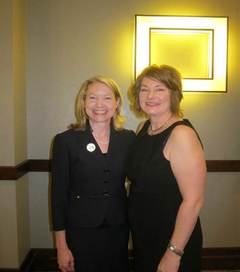 into medical school, not engineering. It was challenging connecting with my peers because they were focused medical school requirements and we didn't share a common interest in engineering and what we actually wanted to do when we completed our undergraduate degree and "grew up".
into medical school, not engineering. It was challenging connecting with my peers because they were focused medical school requirements and we didn't share a common interest in engineering and what we actually wanted to do when we completed our undergraduate degree and "grew up".
Another challenge I faced in my journey was my first job out of school with a small medical device company, as I was the first woman engineer ever hired in the research and development group and the first recent graduate hired in many years. It was challenging because at first I didn't feel accepted by my male colleagues. It took many months of long hours at work and getting to know my coworkers before I felt they believed I was a capable and competent engineer. This is also when I first became aware of the challenges of finding female mentors and role models, as there were no women executives and only two female managers in the company at that time (in human resources and manufacturing).
To overcome the challenges in school and at my first job, I relied on the encouragement of my family and friends. Have a strong support system - my family, friends, peers and the Society of Women Engineers (SWE), provided me the love, support and encouragement that helped me through my journeys.
My parents were both inspirational, but I would say my mom in particular has inspired me throughout my lifetime. My mom started her career as a teacher and recently retired as an elementary school principal. She encouraged my younger sister and me throughout our education and inspired us to consider and pursue non-traditional careers for women. As a result of my parents support, I became an engineer and my sister a pilot.
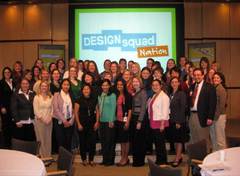
As an engineering student, internships and co-ops are a key to future job opportunities. These experiences also allow you to gauge your interests and abilities. Sometimes you need to find out what job or industry you don't want to work in before you land your dream job. While in school, it is also important to network with professional engineers, through job shadowing and mentoring opportunities, and organizations such as the Society of Women Engineers. These contacts may help you find your next internship or first full-time position. I also encourage collegians to participate in an organization such as SWE to acquire life and leadership skills such as planning a meeting, managing a budget, and interacting with leaders on campus and throughout the organization.
Technology continues to develop at a rapid pace. Recent graduates will have the opportunity to bring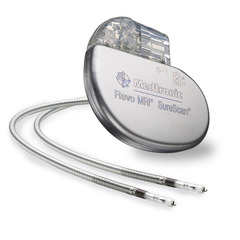 innovative technology solutions to corporations. I look forward to observing the cutting edge technology that will advance the medical device industry thanks to recent and future graduates.
innovative technology solutions to corporations. I look forward to observing the cutting edge technology that will advance the medical device industry thanks to recent and future graduates.
(adapted from dol.gov and Medtronic.com)
Prosthetics - artificial body parts
Regulatory - an oversight or regulating body
Society of Women Engineers (SWE) - an organization aimed at supporting women engineers develop professionally
(adapted from dictionary.com)
Abdul Yassine is a senior biology major and soccer player at Southern M…
Melissa Wallace is an SMU alumna who studied Mechanical Engineering. Sh…
Do you love music and science? Do you think you have to choose just one…